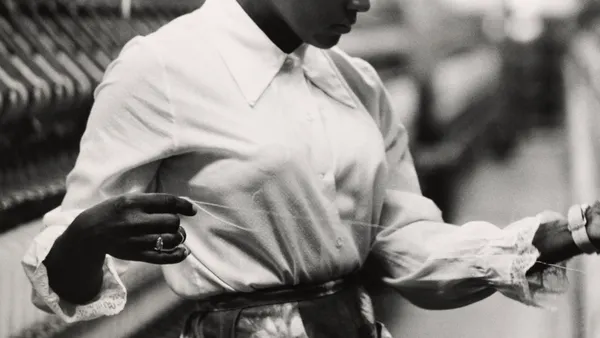Employers across the U.S. are responding to the May 25 killing of George Floyd and the protests it sparked. Some have announced or renewed commitments to make workplaces more diverse and inclusive. These efforts take many forms, from new hires and positions to new programs and trainings.
As employers launch or renew diversity and inclusion (D&I) efforts, they may develop a check-the-box mentality, RedPeg Marketing Director of Employee Experience Pearlie Oni told HR Dive. Below, Oni discusses why such a mentality undermines truly inclusive workplace cultures, and how employers can avoid it.
The following interview has been edited lightly for clarity and brevity.
HR Dive: How do you define what you call authentic diversity?
Oni: It really comes down to whether a company approaches D&I in a performative way. Think about tracking numbers — you have to make sure we have a certain amount of Black people, a certain amount of women. The intent behind that is to show people 'hey look, we are diverse.'
At RedPeg, our focus always has been creating an environment in which people of color and women can come to work. Instead of checking off boxes, we check ourselves about the kind of culture we are offering. If you change the culture internally, if it's a space where people feel like they can come in and thrive, you will attract the diversity you're seeking.
HR Dive: Where do employers go wrong when implementing D&I measures?
Oni: I think the biggest mistake is assuming they know what the issue is and seeking to solve that issue. The first step is to listen to your employees, to listen to their experiences in your organization.
This can be a hard thing to do because you're probably not going to get answers you like. If you're talking to people of color or women who are telling you that they don't feel heard or valued, that's going to hurt.
At RedPeg, we went through that. We made focus groups. We listened. And we vowed to take action. That was the first step before we introduced any employee resource groups, before we did any work. The first thing we had to do was open up our ears.
HR Dive: Do you have a message for HR professionals who are starting a D&I program or renewing their efforts?
Oni: You need to have very tough conversations. As HR professionals, we are taught to shy away from conversations like that. We are not supposed to talk about politics, race or gender at work.
But if you're going to have a D&I program, you're going to have to shed some of that training. People are no longer going to come in and be a number or tally. They want to come in and be themselves, with all the things that make them unique. So you can't keep quiet about social issues anymore. You'll have to prepare yourself and your team for those conversations and create an environment of trust.














